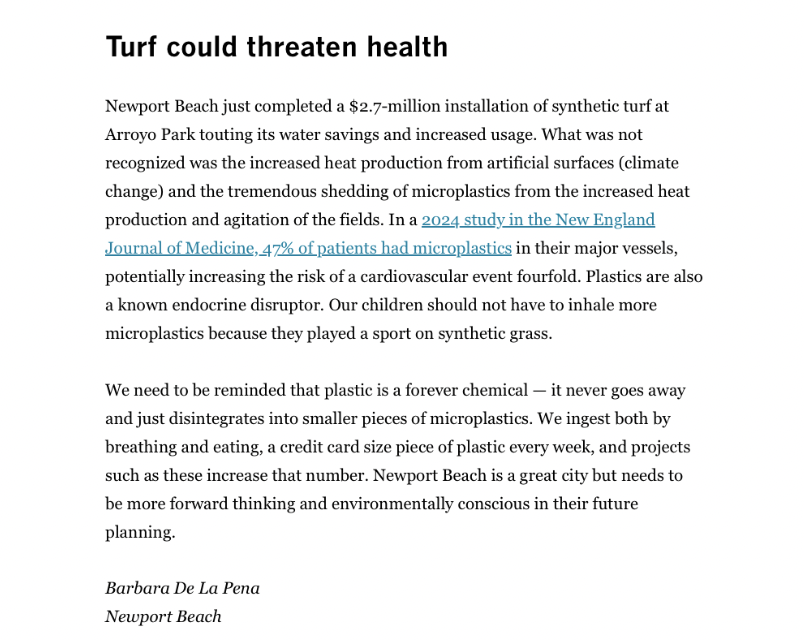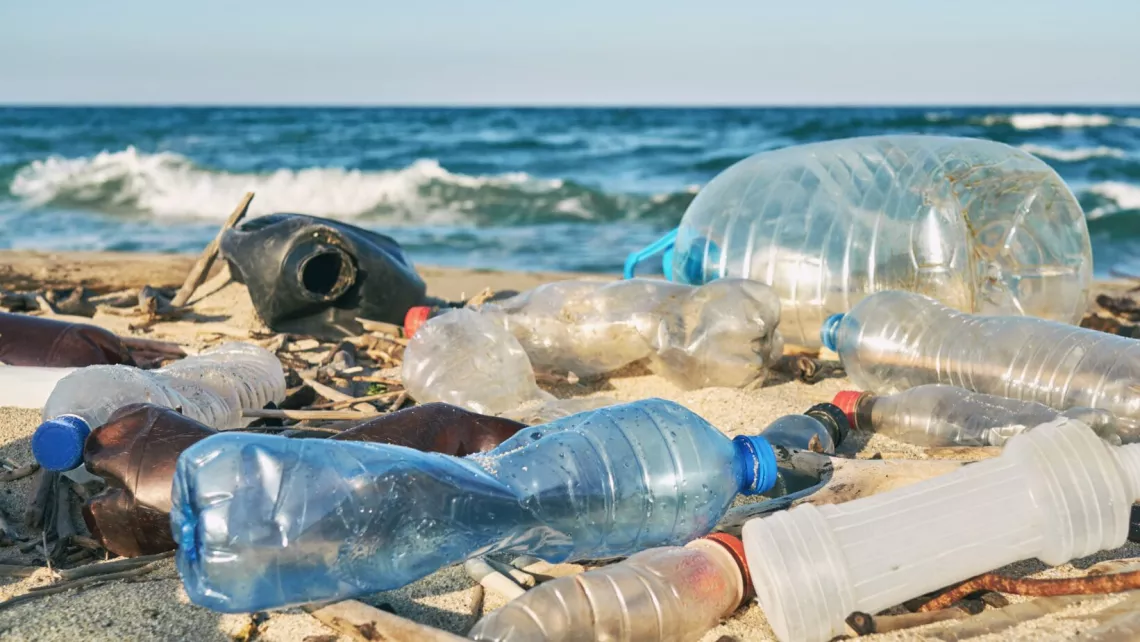June 25, 2024
Ignorance is just one step away from awareness. Once we have awareness, we can change. The more awareness we can spread, the greater the changes can be made.
As new products are introduced, we, as consumers, go with the trend. Who doesn’t have fond memories of a summer picnic with that big Tupperware bowl of potato salad and little plastic container of pickles? But now we know that acidic contents, high fat content, and temperature changes all combine to leach plastics from the container, and we are actually ingesting the bowl with the salad.
Our backyard always had aluminum folding chairs. Cheaper options became available, made from preformed plastic with the promise of “It will last forever!” How prescient the comment was, as it truly will, taking a lifetime to break down into smaller plastics, which we now know as microplastics, found in most living organisms in all corners of the planet and ocean.
Our babies and children are being nourished from plastic bottles, sippy cups, and tableware. Caring mamas are pumping their breast milk into sealable plastic baggies. All items are labeled “BPA free!” But most are not aware that other forms of bisphenol (BP) and other plasticizers are used instead, dodging the ban on BPA, and leaching into the high-fat breast milk. With every swallow, our precious babies are getting a dose of plastic.
Toys that were once made of wood or metal are now cheaply made “to last forever.” Every slide down that slide in the sun, every crash of the plastic cars, every “Sophie” the giraffe that gets grabbed and put in our toddler’s mouth is ingested.
I should have known that when I poured my spaghetti sauce in that Tupperware, the red color never came out. I should have known that the potato chips or cookies never tasted the same once stored in baggies, as they just had an “off” taste. Now I know the off taste was the baggie or Tupperware mixing with the food.
Cities are replacing real grass with synthetic grass made of plastic, claiming to reduce water consumption, decrease maintenance, and cut costs. But the true cost is our children’s health as the heat of the sun and friction of running and playing release microplastics to be inhaled.
Ignorance can be reversed by spreading the word in publications, either through articles or letters to the editor. I’ve written a few, hoping to send a clear message to educate those who may just not know. When the City of Newport Beach replaced their park's grass with synthetic grass, I wrote the following for the Daily Pilot.

Plastic Free July is impossible, but little by little, we can reduce our consumption by being aware. It is up to us to continue to influence change by spreading awareness.
Barbara De La Pena is a Sierra Club member in Newport Beach, California.
